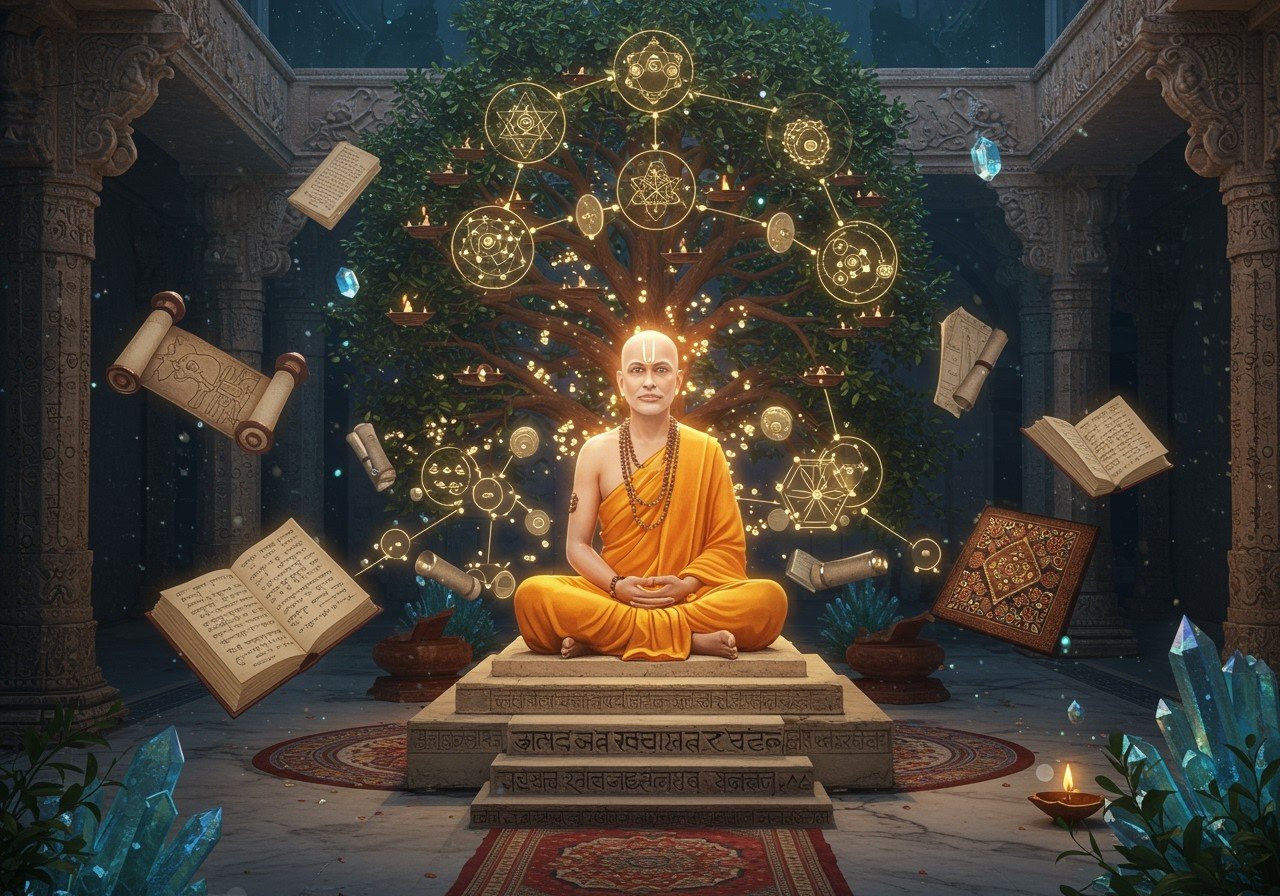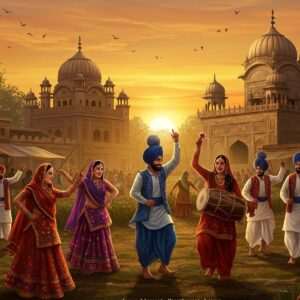
Delving into Indian Philosophy: A Beginner’s Guide
Indian philosophy, a profound and diverse field, has evolved over millennia. Originating on the Indian subcontinent, it encompasses a wide range of schools, traditions, and perspectives on fundamental questions about reality, existence, ethics, and the nature of knowledge. This guide provides a starting point for navigating this rich and complex landscape.
Understanding Indian Philosophy
Indian philosophy refers to the philosophical traditions and systems of thought that originated in the Indian subcontinent. These systems, often called “darshana,” meaning “to see” or “looking at,” explore profound questions about reality and existence. They encompass both ancient and modern thinkers, theistic and atheistic views, including perspectives from Hindu, Buddhist, and Jain traditions. Explore our collection of holy books at poojn.in to delve deeper into these diverse philosophies.
Key Characteristics of Indian Philosophy
- Holistic Approach: Indian philosophies often integrate various aspects of human existence, including the physical, mental, and spiritual dimensions. This approach considers the interconnectedness of all aspects of life.
- Emphasis on Self-Realization: A central aim in many Indian philosophical systems is to understand the true nature of reality and achieve liberation (moksha) from the cycle of birth and death (samsara). This involves deep introspection and self-discovery.
- Ethical Conduct: Ethical behavior (dharma) and self-discipline are considered essential for spiritual growth and attaining liberation. This emphasis on ethics guides individuals towards righteous living.
- Diverse Perspectives: Different schools of thought offer unique viewpoints, fostering a rich exchange of ideas. This diversity has profoundly influenced Indian culture and spirituality, enriching the intellectual landscape.
Classifying Indian Philosophical Schools
Indian philosophical traditions are broadly classified into two main categories:
1. Orthodox (Astika) Schools
These schools accept the authority of the Vedas as a primary source of knowledge. The six major orthodox schools are:
- Nyaya: Focuses on logic, epistemology, and methods of acquiring valid knowledge. Nyaya emphasizes logical reasoning and analysis to understand reality.
- Vaisheshika: Delves into metaphysics and atomic theory, explaining the universe through categories and elements. It offers a unique perspective on the structure of reality.
- Samkhya: An analytical system exploring the nature of matter and spirit, emphasizing the dualism between Purusha (consciousness) and Prakriti (nature). This duality is central to its understanding of existence.
- Yoga: Focuses on self-discipline and practical methods for achieving self-realization through physical and mental practices. Patanjali’s Yoga Sutras serve as a foundational text, guiding practitioners on this path.
- Mimamsa: Primarily concerned with the interpretation of the Vedas, particularly the ritualistic aspects and performance of Vedic sacrifices. It offers detailed insights into Vedic rituals and their significance.
- Vedanta: Explores the philosophical aspects of the Vedas, especially the Upanishads. It seeks to understand reality, the self (Atman), and the ultimate reality (Brahman). Key schools within Vedanta include Advaita (non-dualism), Vishishtadvaita (qualified non-dualism), and Dvaita (dualism). For a deeper understanding, explore our collection of holy books at poojn.in.
2. Heterodox (Nastika) Schools
These schools do not accept the Vedas as the ultimate authority and offer alternative perspectives on existence and liberation.
- Jainism: Emphasizes non-violence (ahimsa), karma, and liberation through self-discipline and ethical conduct. Its core tenets center around minimizing harm and pursuing spiritual liberation. Learn more about Hindu philosophy here.
- Buddhism: Focuses on the Four Noble Truths and the Eightfold Path to overcome suffering and achieve enlightenment (nirvana). This path involves understanding the nature of suffering and cultivating practices to transcend it.
- Charvaka: A materialistic school that rejects the Vedas, afterlife, and supernatural phenomena. It emphasizes direct perception as the only valid source of knowledge. This school prioritizes empirical observation and material reality.
Goals of Indian Philosophy
The primary aims of Indian philosophy include:
- Understanding Reality: Exploring the fundamental nature of existence and the principles governing the universe. This exploration seeks to answer profound questions about the nature of reality.
- Achieving Liberation (Moksha): Seeking freedom from the cycle of birth and death (samsara) to attain ultimate freedom and bliss. This pursuit involves spiritual practices and self-realization. Learn more about connecting with your inner self here.
- Inner Transformation: Integrating philosophical insights into daily life for self-realization and inner peace. This involves applying philosophical principles to one’s actions and thoughts.
- Ethical Living: Guiding moral and ethical behavior to promote harmony with oneself and others. This ethical framework provides a guide for navigating life’s challenges with integrity. Poojn.in offers a range of Puja items to support your spiritual practices.
Getting Started with Indian Philosophy
Begin your journey into Indian philosophy with these steps:
- Read Introductory Texts: Start with beginner’s guides that offer an overview of the main schools and concepts.
- Explore Primary Texts: Delve into primary texts like the Upanishads, Yoga Sutras, and Dhammapada for deeper insights. Poojn.in offers a selection of holy books to support your study.
- Consider Different Perspectives: Be open to diverse viewpoints and interpretations within Indian philosophy.
- Reflect and Apply: Contemplate the concepts and integrate them into your life and experiences. Enhance your reflective practices with meditation supplies from poojn.in.


